The ‘gaffe machine’ gets a tuneup: Joe Biden stays surprisingly on message as president
- Oops!Something went wrong.Please try again later.
- Oops!Something went wrong.Please try again later.
WASHINGTON – Joe Biden was four months away from declaring his candidacy for president when an interviewer asked him about his well-documented history of saying precisely the wrong thing at precisely the wrong time – a potentially fatal flaw in a protracted presidential race.
“I am a gaffe machine,” Biden conceded.
Lately, the gaffe machine seems to have gone mostly silent.
Biden, whose verbal missteps and chronic foot-in-mouth disease have been the stuff of legend for much of his political career, has stayed surprisingly on message since moving into the Oval Office in late January.
As president, not only is Biden careful in what he says and how he says it, “he does exceptionally well in terms of getting out his message,” said Stephen Frantzich, a retired political science professor at the U.S. Naval Academy and author of a book about political candidates’ verbal stumbles.
“Words matter,” Frantzich said, “and I think he has learned that lesson.”
Biden still speaks at times in the same tortured syntax that causes confused listeners to shake their heads and ask, “Huh?” He still loses his train of thought mid-sentence or sometimes starts off on one topic and ends up on another.
But the phonetic flubs that have sent headline writers and his communication team into a frenzy, albeit for different reasons, have been mostly missing during his nascent presidency.
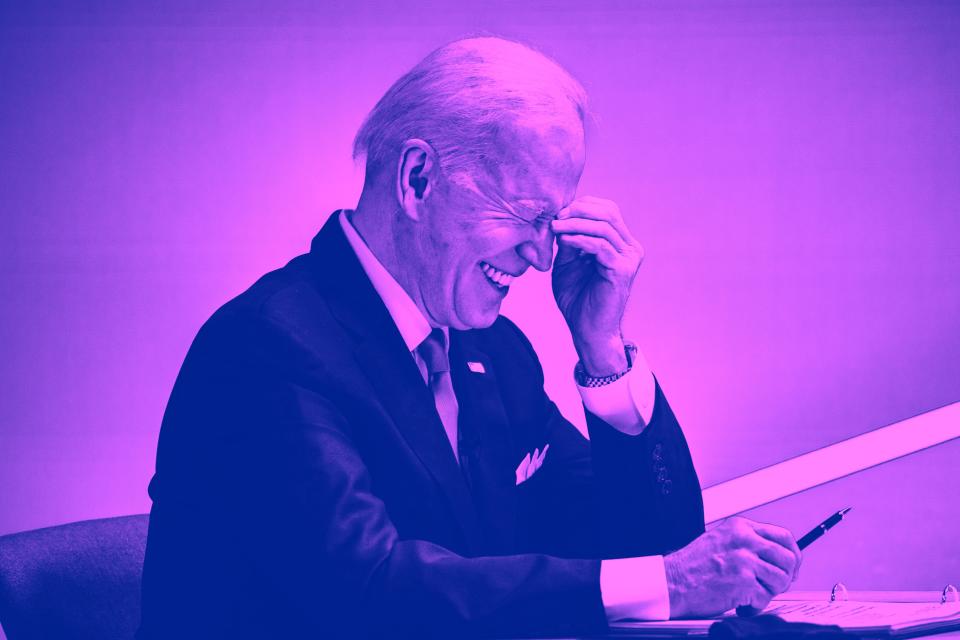
A White House official, who spoke on the condition of anonymity, argued many of Biden’s verbal slip-ups have been overblown by the media and have actually proved to be one of his biggest political assets. Biden’s speaking style comes across as genuine and reminds Americans that he’s a real person when people crave authenticity, the official said.
To be sure, Biden still occasionally has eyebrow-raising moments that force his staff to shift quickly into cleanup mode.
In March, he complained of “Neanderthal thinking” after two Republican governors – Greg Abbott of Texas and Tate Reeves of Mississippi – lifted face mask mandates and other COVID-19 restrictions. Abbott wasn’t amused. Neanderthal is “not the type of word that a president should be using,” he shot back.
In April, Biden called the state of affairs at the U.S.-Mexican border “a crisis” – a label that his staff had spent weeks painstakingly avoiding. White House press secretary Jen Psaki said Biden believes the conditions causing people to flee Central American countries are a crisis, but he doesn’t think it’s a crisis that children are crossing into the USA to escape those hardships.
Those stumbles pale in comparison to some of Biden’s blunders.
A sense of 'normalcy': Daily routine and a script are back in the Biden White House, but how long can it last?
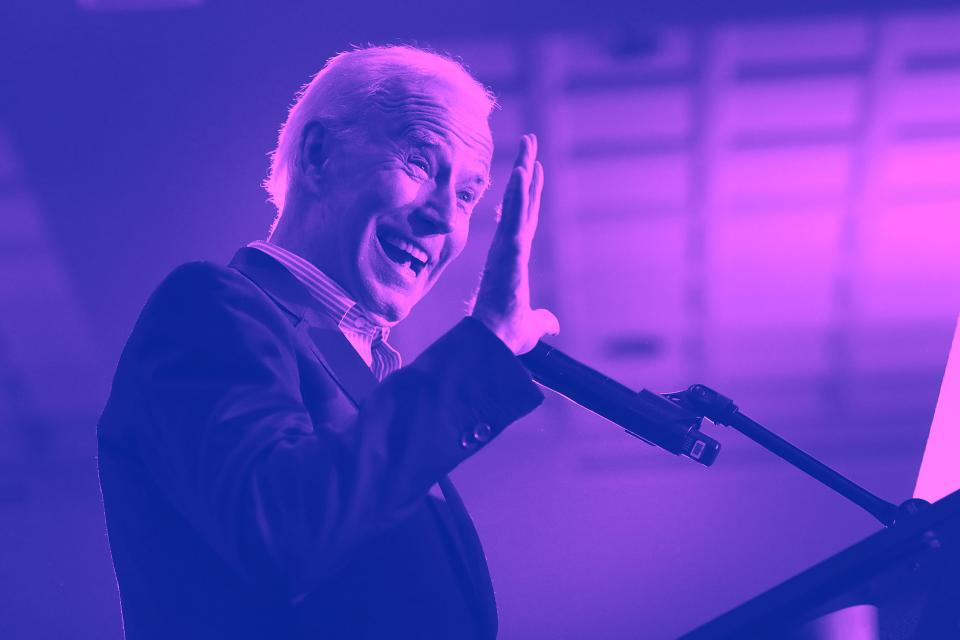
'Articulate and bright and clean'
At a Democratic presidential debate in 2007, Biden paid Barack Obama the dubious compliment of being “articulate and bright and clean." Obama became the nation's first Black president, and Biden served as his vice president.
At the White House in 2010, Vice President Biden was caught on a hot mic congratulating Obama, who had signed his signature health care plan into law. “This is a big f---ing deal!” Biden exclaimed.
During last year’s presidential campaign, Biden touched off a mini-controversy when he told popular African American radio host Charlamagne Tha God that if a Black person was having trouble choosing between him or Donald Trump, “then you ain’t Black.” Biden conceded that he “shouldn’t have been such a wise guy.”
Now that he’s president, Biden seems to understand that “the microphone is always on and whatever he says is going to be captured,” Frantzich said.
“He has realized in the past how his gaffes have hurt him, and (as president), he has been very cognizant of that fact,” he said.
Asked how Biden's advisers keep him on message, White House deputy press secretary Andrew Bates said the president is "laser-focused" on the challenges he inherited upon taking office, such as rebuilding the economy and making the government work again.
“Those are the causes he’s putting his voice behind,” Bates said. “And he’s doing it in line with the authenticity and values that were critical to him winning this office.”
For Biden and the country, the stakes are a lot higher and dictate that he choose his words carefully, said Susan Stokes, director of the University of Chicago's Center on Democracy.
“A big part of our country is under the spell of Donald Trump, and that’s a dangerous place,” Stokes said. “The Biden people, the Democrats know that. It’s his job to kind of pull us back from the abyss.”
That’s a sobering task, Stokes said, and probably a constant reminder to Biden’s staff, his Cabinet, everyone around him – even Biden himself – that “there isn’t room for loose talk, there’s not room for mistakes.”
‘It can’t just be a coincidence’: Biden uses artwork to underscore his message to America
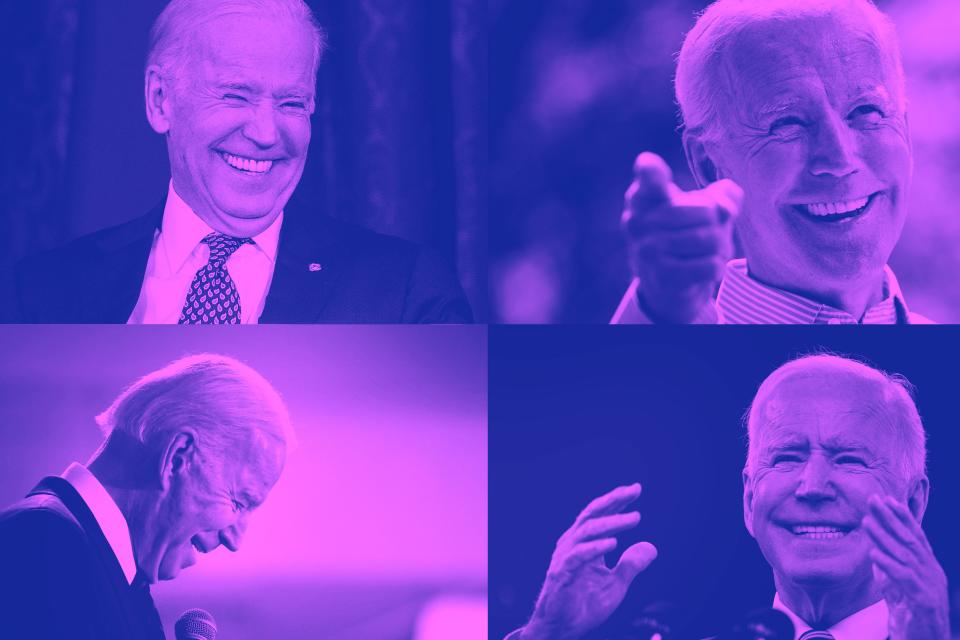
'Don't take questions'
Another possible contributing factor to Biden’s message discipline: Access to him is more limited. There are fewer public opportunities for him to make the kind of ad-lib remarks that have gotten him in trouble, Frantzich said.
Trouble is often just one reporter away. Biden’s team tries to avoid those danger zones by urging him not to engage with reporters who shout questions during his public appearances, Psaki divulged in a podcast this month.
“A lot of times we say, 'Don't take questions,’” Psaki said. She conceded, “He’s going to do what he wants to do because he’s the president of the United States.”
And he does.
Though he has held few formal news conferences as president, Biden frequently responds to reporters’ questions after speeches or events or while he’s rushing to board the presidential helicopter or Air Force One. The exchanges are often notable, if not newsworthy.
Test driving Ford Motor's all-new electric pickup in Michigan on Tuesday, Biden pulled up next to the pool of reporters traveling with him. When one of the scribes wanted to ask him a question about the escalating Israel-Gaza conflict, Biden quipped, “Not unless you get in front of the car as I step on it.”
At the White House a couple of weeks earlier, after wrapping up his remarks about April’s less-than-robust jobs report, Biden fielded questions on Russia and Iran when a reporter asked why he continues to wear a face mask even though he has been vaccinated and is always around others who have gotten vaccines.
“Because I’m worried about you,” Biden cracked.
In both cases, Biden emphasized that he was joking.
The “don’t engage the media” strategy that Biden’s communication team tries to get him to follow is one that presidential staffs have tried to enforce for years, said William Bike, a political commentator, communication expert and author of a how-to guide called “Winning Political Campaigns.”
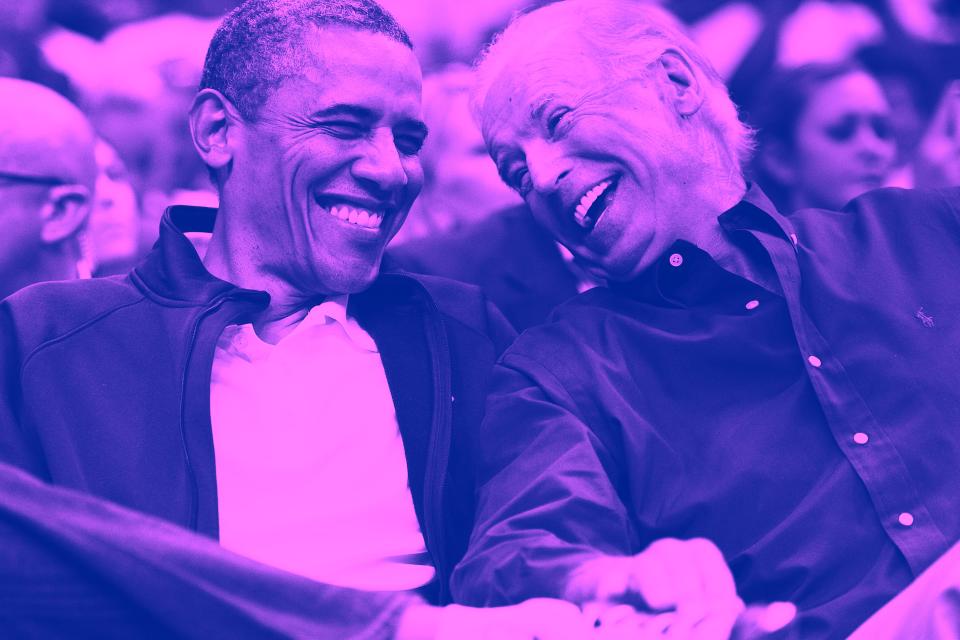
“Staffs have been discouraging presidents from interacting with the press since 1968, when Richard Nixon handed his presidential campaign over to marketing professionals who kept him tightly scripted – and got him a victory,” Bike said.
Some presidents – Trump and George W. Bush, for example – were tougher to rein in and became famous for their at-times garbled phrasing, questionable word choice and, in Trump’s case, frequent misstatements of fact.
“Biden’s Nixonian tight scripting has helped him avoid verbal gaffes, but a president has to be committed to that tight scripting,” Bike said. “Bush and Trump weren’t. And Biden wasn’t before 2016. But he now understands its importance.”
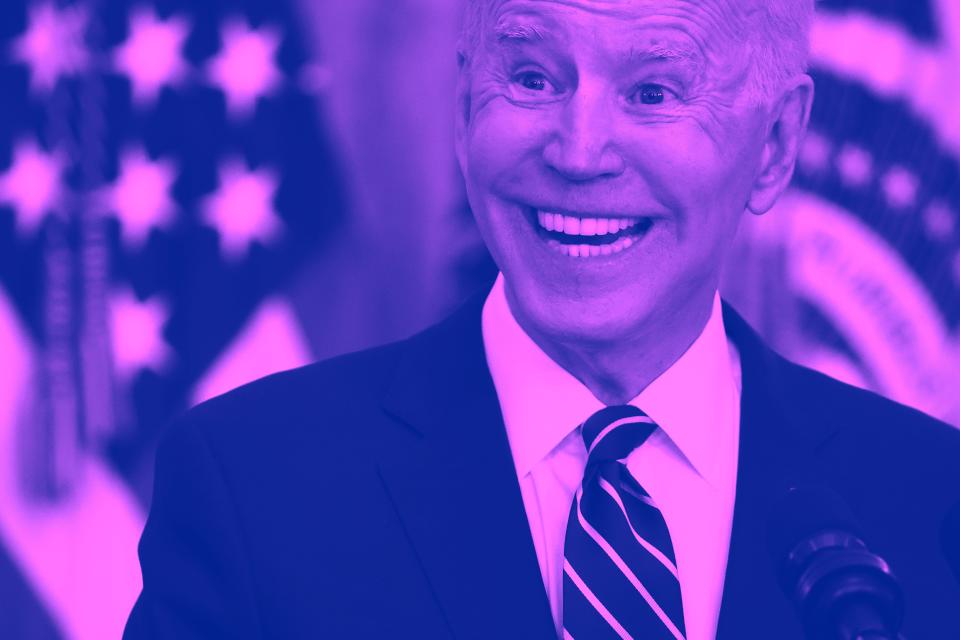
'Sincere and committed'
During last year’s contentious presidential campaign, Trump tried to use Biden’s history of word-tripping to sow doubts about whether he was mentally sharp enough to be president. Trump’s efforts were undercut by his own long record of outrageous statements and mistruths.
If anything, Biden, who at 78 is the nation’s oldest president, probably benefits from Trump’s tumultuous four years in office, Stokes said.
“The majority of Americans thought Trump was not just a bad president but a bad person,” she said. “I think those people are more tolerant of the less glib, less verbally astute ‘next president’ because of the contrast with Trump and because they think Biden is sincere and committed, wants to do a good job and cares about the country.”
A lot of Americans attribute “good intentions, good qualities to Biden,” Stokes said, “and so they care less about the verbal mishaps and slips.”
SUBSCRIBE: Help support quality journalism like this.
Biden seemed to understand that as well as anyone – and maybe better than his critics.
In December 2018, while Biden was teasing his presidential candidacy but had yet to formally announce he was running, the moderator at an event in Missoula, Montana, asked him to address a long list of challenges and accusations he was likely to face in the upcoming campaign. Chief among them were concerns that he was too old, too out of touch and too prone to misspeak.
“Who wants to wake up at 6 a.m. for the next two years and get insults from the president of the United States?” the moderator asked. “You’re a gaffe machine.”
Biden quickly turned the question into a takedown of Trump, whom he defeated two years later.
"I am a gaffe machine,” he conceded.
“But, my God,” he added, “what a wonderful thing compared to a guy who can't tell the truth.”
Michael Collins covers the White House. Follow him on Twitter @mcollinsNEWS.
Less talk, bolder policies: Why Joe Biden's presidency has been so surprising in the first 100 days
This article originally appeared on USA TODAY: A 'gaffe machine' goes silent: Biden stays on message as president

